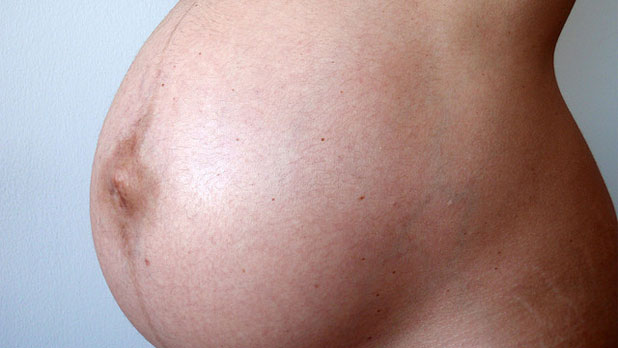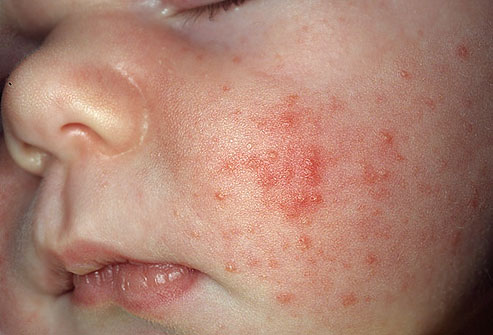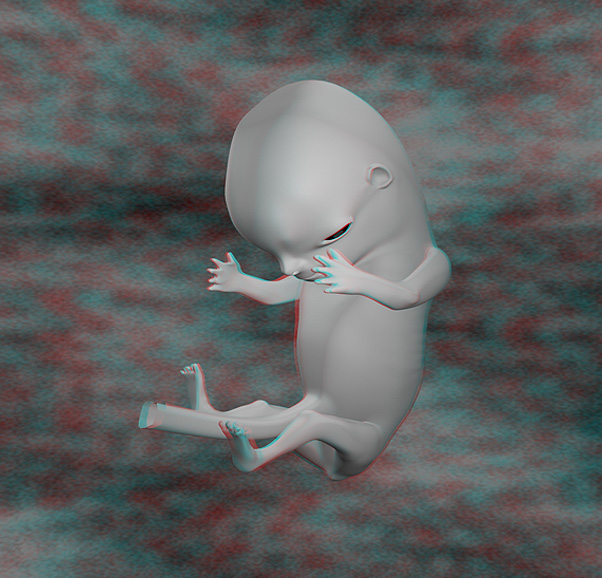Your baby maybe affected by colic if he or she cries the same time each day and whatever you do to give comfort does not seem to help. Colic is characterized as crying for over three hours, more than three days up to three weeks that affects a healthy and well-fed baby. If you observed your baby to cry with no apparent reason, it is recommended that you visit your pediatrician. Only a qualified healthcare provider can diagnose if your child is colic baby or not.
Colic seems to affect one out of ten babies. It is usually observed when the baby is usually few weeks old. Crying associated with colic may not seem ordinary since it is characterized with screaming, purple face and flailing arms. The fits normally happen during in the afternoon and evening.
This may affect your baby from six weeks and may improve when your child reaches 3 to 5 months. Parents of colic baby find it hard to handle the situation as parenting skills may be questioned by those who do not understand the condition. However, keep in mind that this stage can be outgrown by your child.
What are the Symptoms of Colic?
Crying is normal for babies but what set them apart to be colic are some general symptoms. Some symptoms of colic may include are:
- Changes in posture are observed with colic baby. Infants with colic normally curled their legs, clenched their fists and tensed abdominal muscles are observed.
- Crying episodes are normally predictable. A baby with colic will cry at about the same time each day. The episodic crying normally happens in the afternoon and evening. The crying with screaming may start even the baby is not hungry.
- Crying is extreme and high-pitched. Infant may have flush face and may not accept any comfort from you.
- Infant may pass gas after episode of crying.
What are the Causes of Colic?
The exact reason of colic is not really known. There are various studies taken but still the possible reasons are unclear. However, various factors may affect colic. Some of these are:
- Infant may have developed milk allergies. Milk allergies and milk intolerance are the first possible reason for non-stop crying.
- The digestive system of a baby is not full develop and may cause unusual strong contractions that may be uncomfortable to infants.
- Presence of intestinal gas
- Hormone changes
- Temperament
- Maternal anxiety
- Different ways the baby is comforted
Being a first time parents is not really related to colic. Even those experienced mothers may have colic baby. Likewise, the foods, a breastfeeding mothers eat do not really cause colic.
Formula milk is not really the culprit of colic, though, there are certain formulas that may relieve the symptoms of colic. Your colic baby may have lactose intolerance and will somewhat be relieved if their milk is lactose free.
However, the exact reason why colic babies have crying fits is not clearly known but as a parent, you may take time to study your babies. Your colic baby may be telling you something. Some of the things your baby is trying to say something may include:
- May feel hungry. Your baby especially new born needs to be fed every few hours. Respond immediately when the baby shows signs of hunger.
- The diapers may be wet. An ordinary infant without colic may cry due to dirty diapers but a colic baby may have screaming episodes if it have soiled diapers. To avoid this, you have to check your infant diapers from time to time to make sure that is not wet.
- Your baby may want to have sound sleep. Avoid waking up your baby with unwanted noise as this may create colic episodes.
- Your infant may want to feel your presence. Most of colic baby respond immediately when hugged or cuddled by their parents.
What are the Treatments for Colic?
There are no specific treatments for colic. You just need to handle your infant with more outmost care and comfort. Some ways that may help you deal with colic are:
1. Feed your baby
 Feeding your baby may improve the symptoms of colic. It is just important to hold the baby the right way when you are feeding and burp your baby more often. This will avoid unnecessary fussiness on the part of your baby
Feeding your baby may improve the symptoms of colic. It is just important to hold the baby the right way when you are feeding and burp your baby more often. This will avoid unnecessary fussiness on the part of your baby
2. Cuddling your baby
 Cuddling your colic baby may soothe them immediately. The warm hug from the parents has a lasting effect on your baby. Do not worry that holding them much will spoil them. Sometimes, colic babies just want to feel the presence of people who love them.
Cuddling your colic baby may soothe them immediately. The warm hug from the parents has a lasting effect on your baby. Do not worry that holding them much will spoil them. Sometimes, colic babies just want to feel the presence of people who love them.
3. Diet change
 A lactose free diet may greatly improve the symptoms of colic. Some babies cannot tolerate the lactose present in their diet thus resulting to milk allergies.
A lactose free diet may greatly improve the symptoms of colic. Some babies cannot tolerate the lactose present in their diet thus resulting to milk allergies.
4. Massage
 Soft massage around the tummy may give relief to your crying baby. This may also reduce the tightening of muscles around the abdomen when they have fits.
Soft massage around the tummy may give relief to your crying baby. This may also reduce the tightening of muscles around the abdomen when they have fits.
For parents, it is important to understand that colic is for short term only. You colic baby will surely outgrow it when they reach around five months. Work closely with your pediatrician to make sure that your baby is healthy.












